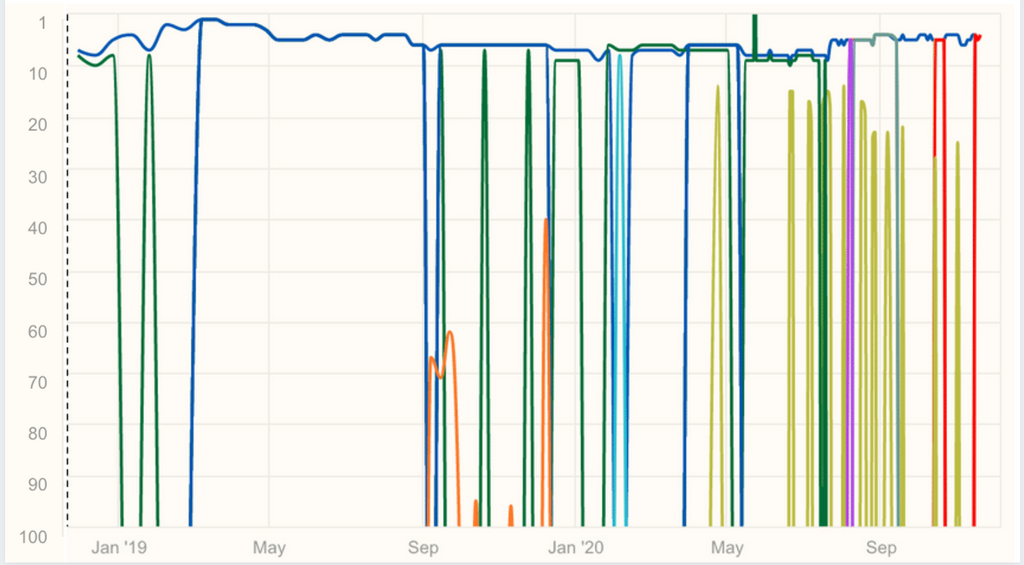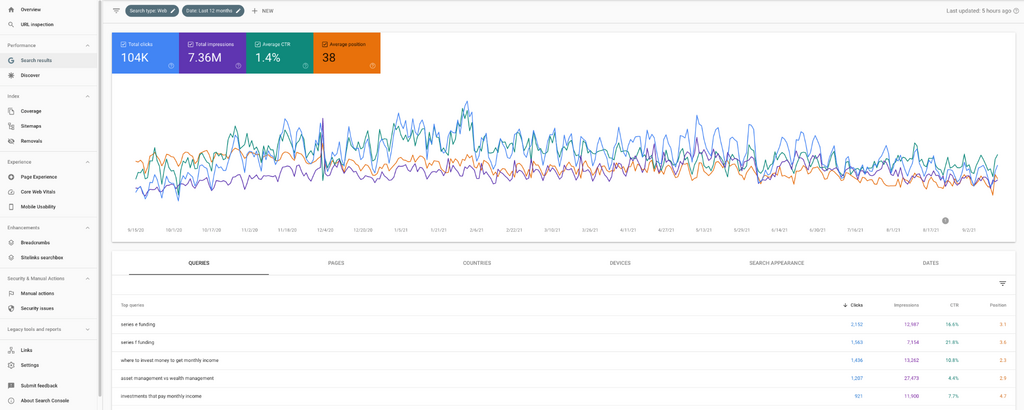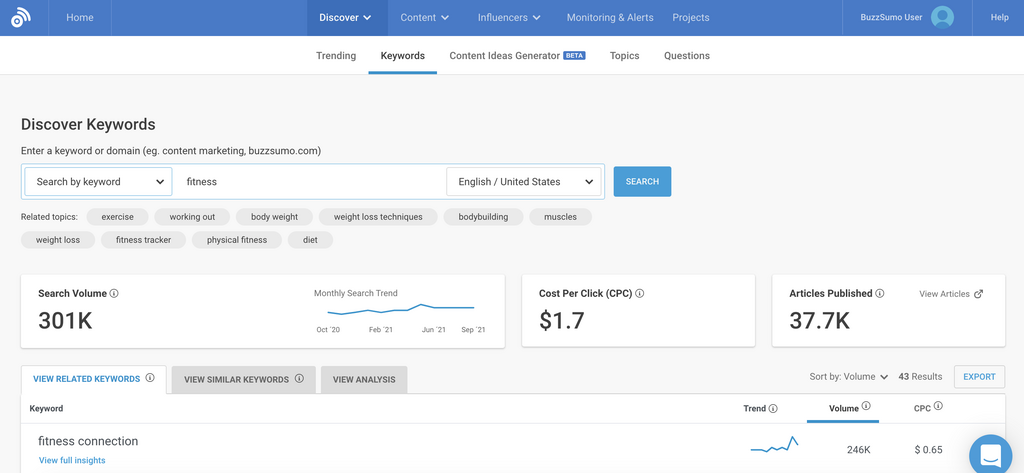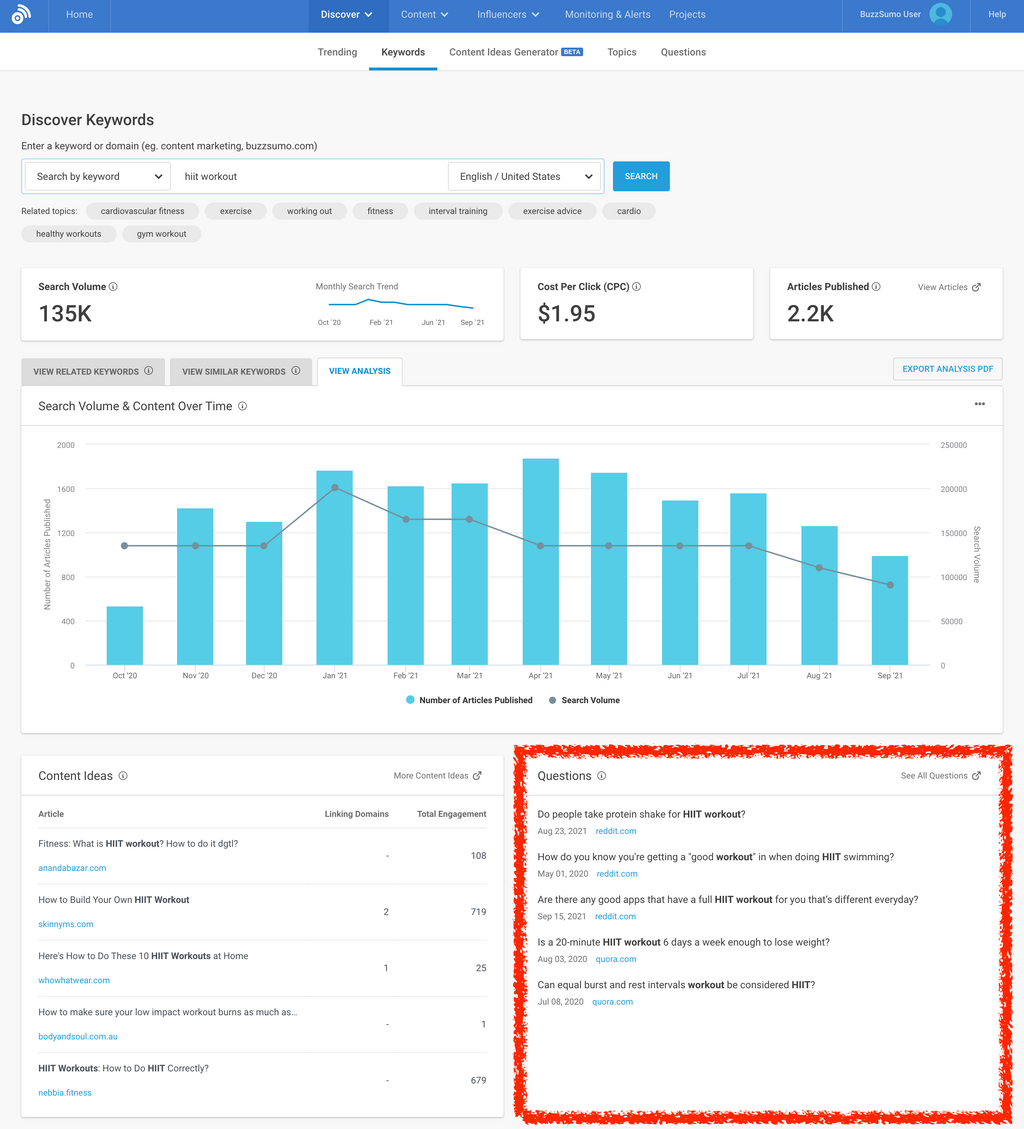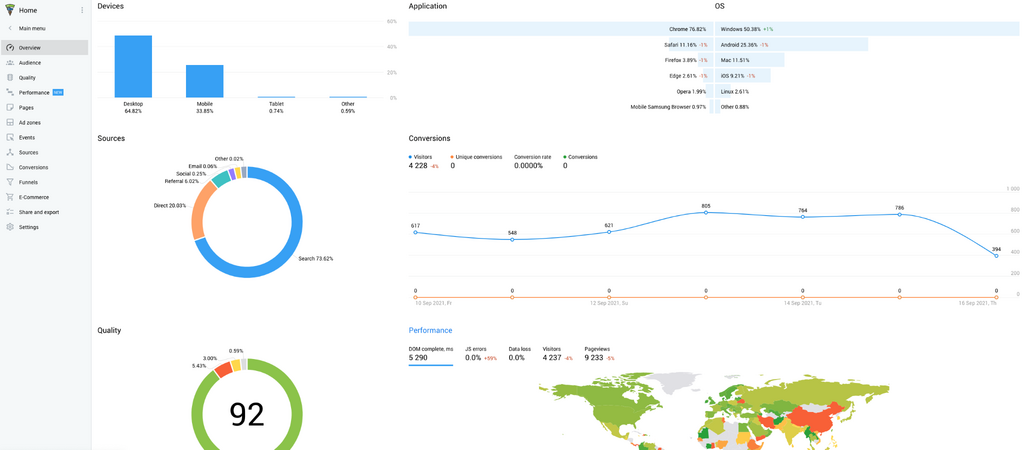Published October 19th 2021
Keyword Mapping for SEO: What You Need to Know in 2022
Despite advancements in NLP and algorithms like BERT, mapping keywords to your content is still hugely important to give it a fighting chance in 2022. Dmytro Spilka gives his tips & tool suggestions for this process...
Keywords are the cornerstone of great SEO.
Using the right keywords has the potential to make or break your bid to climb Google’s SERPs and gain first-page exposure.
However, successful search engine optimization isn’t easy.
You’re essentially vying for attention alongside a huge volume of rivals when it comes to content.
However, by paying attention to keyword mapping, it’s possible to put yourself in the best position to outperform when ranking online.
As a website owner, you may often find yourself stuck in a continual loop of urgent work, leaving very little room to reevaluate your SEO strategy and examine your site’s objectives.
Keyword mapping can boost your search engine optimization efforts, help you develop a far more comprehensive internal linking strategy, and ensure that your website remains as user friendly as possible.
But what actually is keyword mapping? And how can it be best utilized to bolster your website’s content in 2022? Let’s take a deeper look at how keyword mapping can help your content strategy:
What is keyword mapping?
Keyword mapping refers to the process of assigning relevant keywords to the pages on your website, which should be done based on their intent and topic.
Site structure is extremely important, and your pages need to be easy to navigate - but what happens after establishing your structure?
Once you’ve compiled the necessary keywords you’re intending to rank for, it’s time to map your discoverable terms out across your pages.
With this in mind, a keyword map can be interpreted quite literally as a map of your keywords distributed throughout your pages.
Simply speaking, a keyword map could consist of a sheet divided into columns where you manage your keywords and your web pages.
You can even incorporate further metrics like search volume and keyword difficulty as a means of offering further insight into your terms.
As we can see from the example above offered up by Moz, keyword maps can be as informal, detailed and orderless as you like.
This means that you can commit as much time as is convenient to undertake your mapping process.
The importance of keyword mapping
Without keyword mapping, your keyword strategy may lack direction and purpose.
Before you begin setting goals for your SEO approaches, it’s important to ask yourself:
- Which keywords you’re targeting
- The level of search volume there is to support your SEO strategy
- Your intended SERP position in regards to your status within your industry
Strong keyword mapping strategies should answer these three questions, allowing you to manage your expectations.
It will also help to guide your SEO campaign and the kind of content you’ll develop as part of your wider optimization strategies.
There are also plenty of very practical reasons behind why keyword mapping should be an essential practice for any content strategy:
Steering clear of cannibalization
One of the most important aspects of keyword mapping is that you can keep on top of any keyword cannibalization that’s occurring within your pages.
Keyword cannibalization takes place when your own pages begin competing with one another for the same keyword.
If you create a ‘fitness trends 2022’ keyworded topic for your health-focused website, it’s important that you’ve not created any new pieces of content that may feature the same keyword - thus causing your website to compete with itself for Google SERP exposure.
Above, we can see what keyword cannibalization looks like.
Each line represents a page from the same website, and the scale on the y axis shows Google’s ranking positions.
As each web page competes for prominence, it’s clear that Google simply has no idea which page should be regarded as the most relevant - so the search engine has resorted to flitting between different pages, with none spending a meaningful amount of time on top.
Keyword mapping mitigates this risk by spreading your keywords evenly throughout your pages - ensuring that your content spends more time outperforming its rivals and less time battling against itself.
Keeping an eye on the competition
Keyword mapping can also help you to keep on top of your industry rivals.
By examining other sites through competitor keyword mapping, you can not only discover fresh keywords to compete for but also give your own page structure a boost.
This form of competitor analysis can save you time in highlighting the areas of your SEO approach that could do with a little improvement.
Keyword mapping your competition can help you to discover specific keywords that are relevant to your website’s niche as well as finding new competitor websites that are utilizing keywords for search results matching your page.
This form of search can be relatively straightforward whilst helping you to tap into a wide range of websites that are thematically relevant to your search term or website.
Keyword mapping tools for 2022
Let’s take a look at some of the most powerful tools available for keyword mapping purposes today:
1. Google Search Console
Over the past 20 years, Google has built a monopoly across the realm of search engines.
When the internet is connected through organic searches, being the undisputed industry market leader is a pretty big deal.
Google’s own tools are among the best for website owners to use in order to monitor their site’s search traffic and overall organic performance.
Among others, Google Search Console offers you the chance to search the terms that draw the most visitors to your web pages.
One of Google Search Console’s most beneficial reports, which can be found in Performance > Pages, offers up a list of search queries that a given page ranks for organically.
This can be particularly useful in helping you to see what terms drive organic traffic to your website and the volume of visitors that it attracts.
If you’re unable to access Google Search Console, however, there are still some helpful keyword analysis tools out there from a range of leading SEO tools – including one from BuzzSumo.
2. BuzzSumo Keyword Tool
BuzzSumo’s Keyword Tool enables you to search by keyword in order to generate a list of related and suggested keywords alongside relevant market and trend data.
The keyword tool also lets you search by domain to better understand the organic performance of a site.
This can help you better understand factors like:
- The total monthly traffic of yours or your competitors' site
- How much of its keyword portfolio ranks on page one of Google
- Which keywords have the highest search volume
- Which keywords rank on page one
- Which keywords drive the most organic traffic
BuzzSumo's Keyword Tool also serves up questions (from the Question Analyzer) related to your specific keyword, from across hundreds of thousands of forums.
This can help you get a better insight into the mind's of your audience, and solve common pain points.
Check out 30+ marketing & SEO Chrome extensions, including BuzzSumo's latest extension to help you analyze pages quickly.
3. Google Analytics and Finteza
It's imperative for you to monitor the success of your keyword mapping – making tools like Google Analytics ideal for observing the success of their content.
Google Analytics is a great trial and error tool for finding all kinds of new keyword ideas, for each stage of the customer journey.
Other analytics apps can also offer strong insights into the quality of traffic that your content draws back to your site.
Finteza, for instance, offers an easy-to-digest table featuring bar charts to denote visitor volume in relation to other pages and color-coded session growth rates – helping users to see what pages need a keyword re-think and what content may become cannibalized.
With the right keyword mapping strategy, you’ll be climbing Google’s SERPs and hitting the first page in no time.
Categories
SEOCategories
SEOThe Monthly Buzz⚡
Subscribe to BuzzSumo's monthly newsletter to:
Stay up-to-date with the best of the best in content marketing 📝
Get data-informed content, tips and tidbits insights first 👩🏻💻
Read top shared content by top marketing geeks 🤓
Try
Enter any topic, term or url to search to see BuzzSumo in action. It’s free!
100% free. No credit card required.

